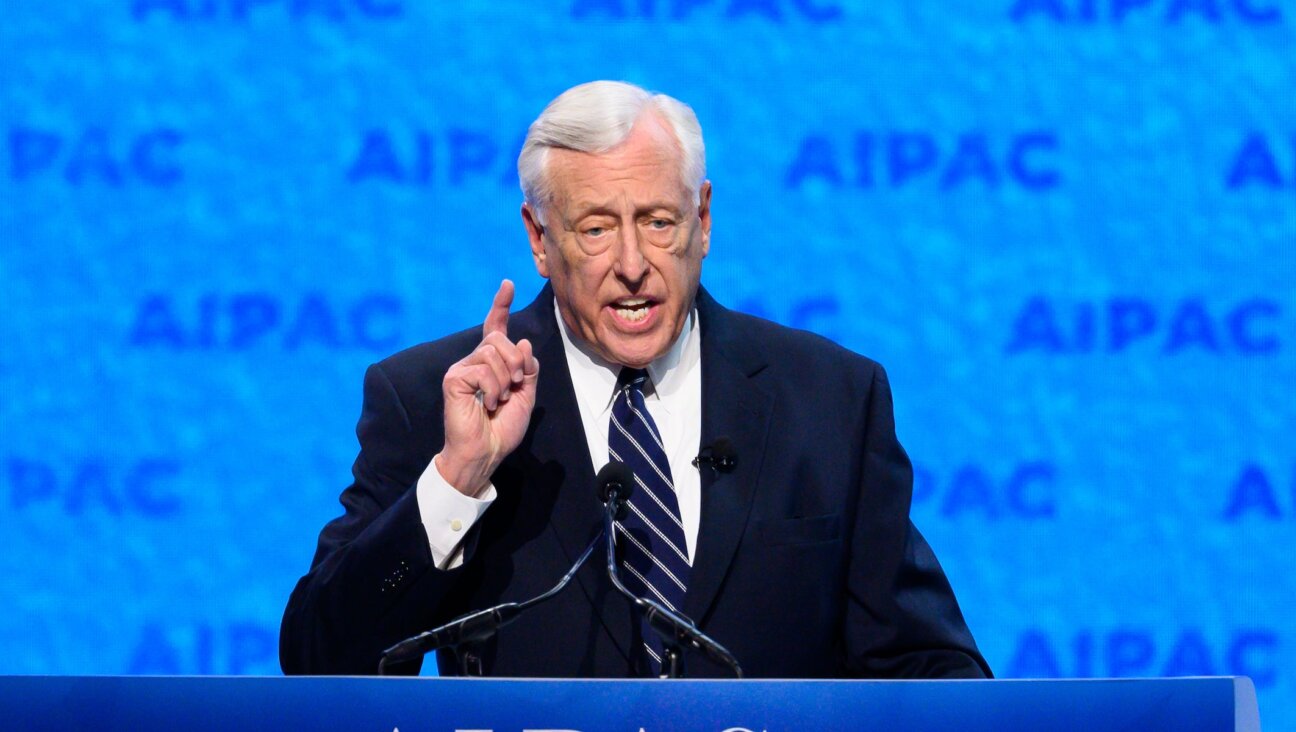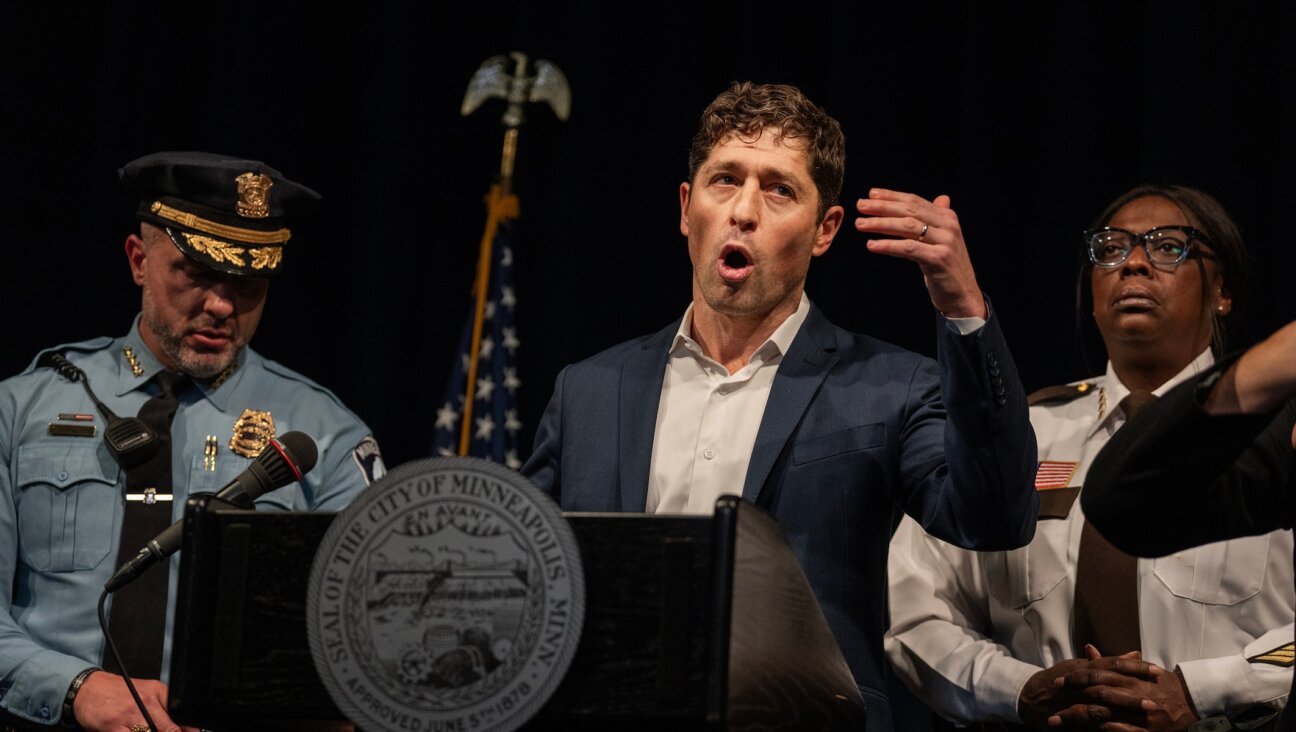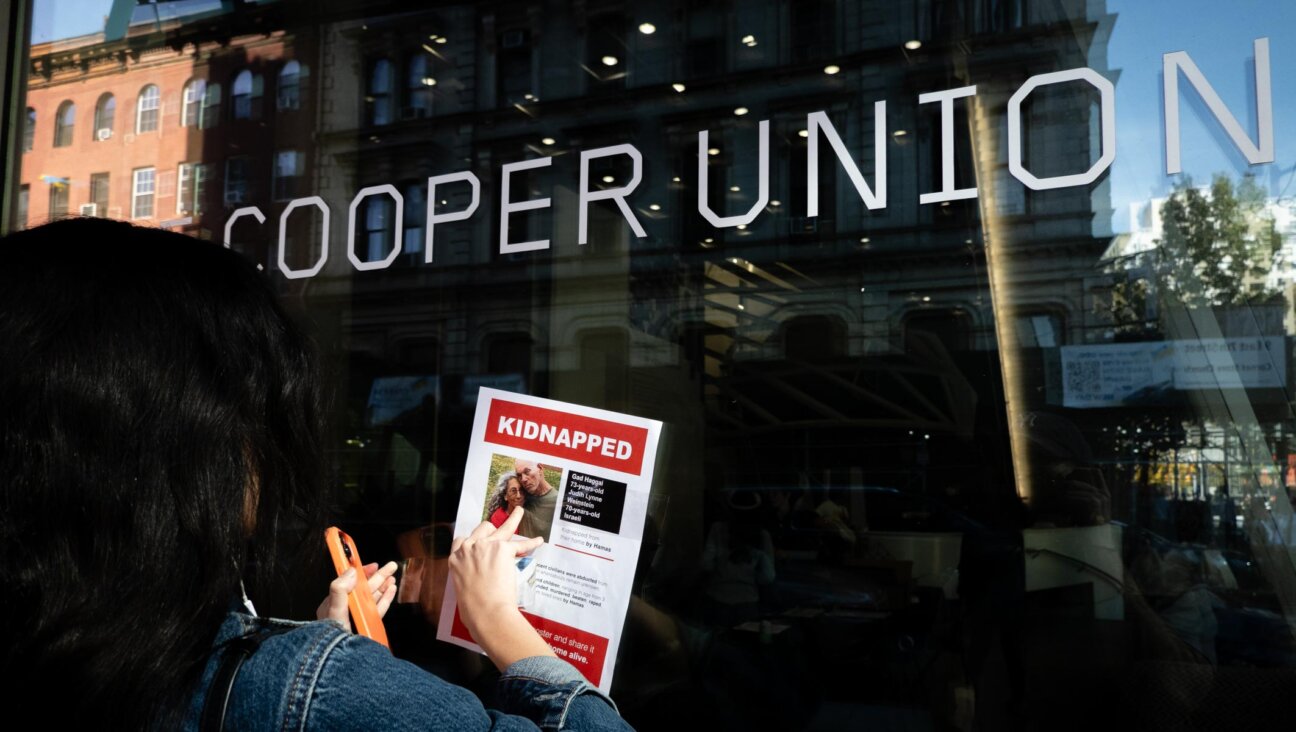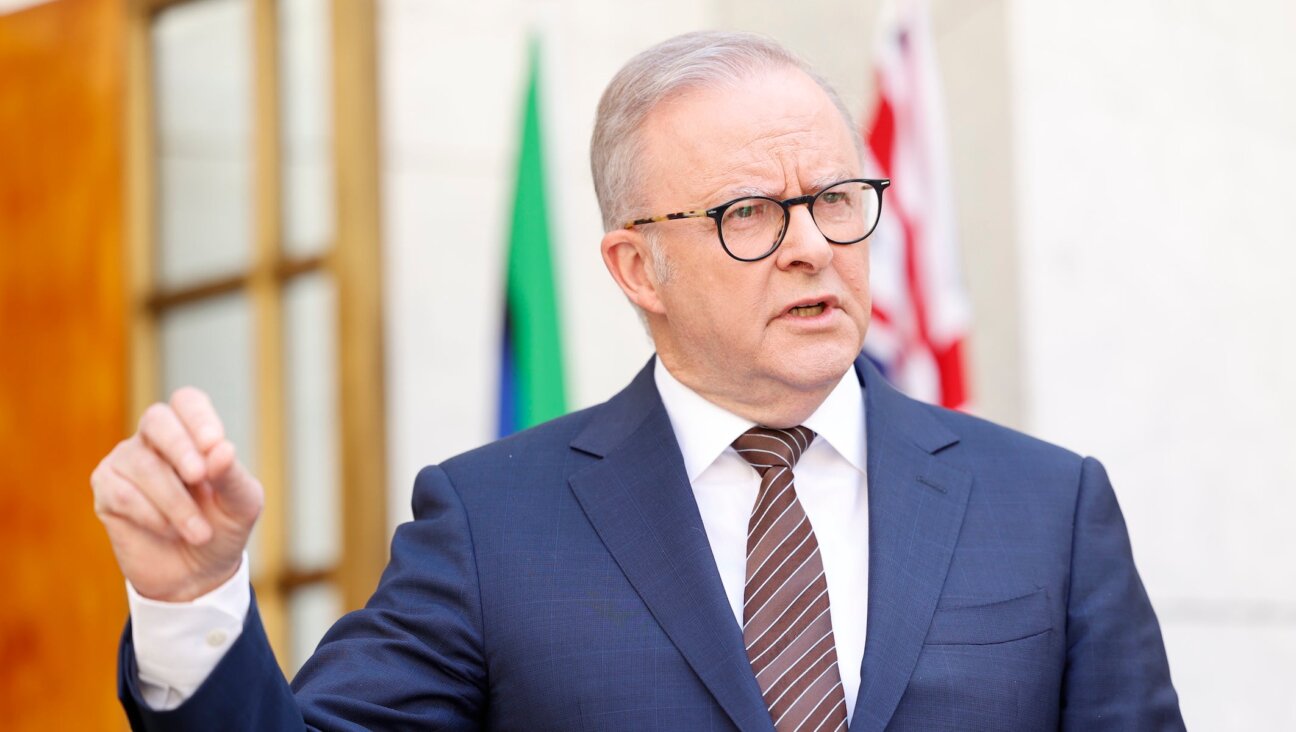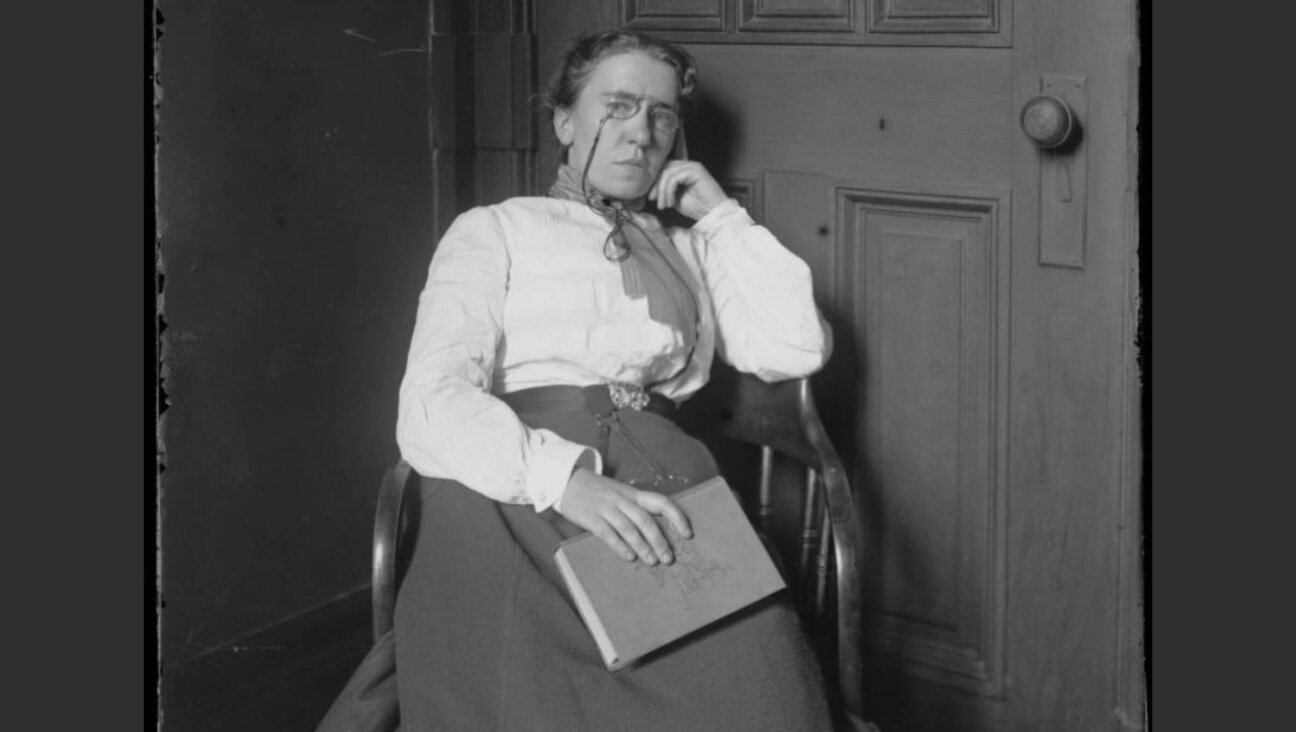French Jewish Community on High Alert After Paris Attacks

Image by Getty Images
(JTA) — More than 100 people were reportedly killed in a series of terror attacks that rocked Paris Friday night.
French President Francois Hollande in a televised address late Friday said the “unprecedented” attacks affected at least three locations and were ongoing. He declared a state of emergency throughout France and closed the country’s borders.
“This is a terrible ordeal which once again assails us,” he said in remarks translated by Reuters. “We know where it comes from, who these criminals are, who these terrorists are.”
Roger Cukierman, the president of the CRIF, the umbrella group of Jewish institutions in France, told JTA Friday that he had not heard of any Jewish targets but that the situation remained fluid.
“The security team of the Jewish community is on high alert,” he said. The BFMTV television station reported that 100 people died in the attacks.
One of the deadliest attacks involved at least one shooter who fired at patrons of Le Bataclan, a concert venue in Paris’ central 11th arrondissement, or district. At least 100 people died there, according to reports. French security personnel stormed the building, believing hostages may have be held inside. Police killed two terrorists on site. French news magazine pointed out that the venue has been a frequent target of threats over the because of its Jewish owners.
Another three shooting attacks occurred in the northern 10th arrondissement, according to Le Figaro newspaper.
Hollande was at the Stade de France stadium north of central Paris when at least one bomb exploded there during a soccer match between the French and German national teams, according to press reports. Hollande was evacuated to safety.
The French president said he had ordered a full mobilization of security forces to neutralize the threat and secure all affected neighborhoods.
Speaking from the White House Friday night, U.S. President Barack Obama said he was prepared to provide any assistance to the French government and people in the wake the deadly attacks.
“This is an attack not just on Paris,” he said. “It’s an attack not just on the people of France, but this is an attack on all of humanity and the universal values that we share.”
The attacks come some 10 months after four people were killed in hostage siege on a Paris kosher supermarket on January 9. That deadly attack, perpetrated by an Islamist extremist, came just days after a pair of Islamist terrorists shot to death 12 people at the offices of the French satirical newspaper Charlie Hebdo. A third terrorist attack in January killed a police officer in a Paris suburb.
Security concerns have led many French Jews to immigrate to Israel in recent years. In 2014, for the first time ever, more Jews moved to Israel from France than from any other country. Nearly 7,000 French immigrants arrived in Israel in 2014, double the 3,400 who came in 2013. So far in 2015, some 6,250 French Jews have left for Israel.
Sacha Reingewirtz, the president of France’s powerful Jewish student union, UEJF, was at a Shabbat dinner with some 200 Jewish student leaders at the group’s annual convention when news of the attacks broke.
“The room started to buzz, and word passed on very quickly” he said when reached by phone late Friday.
The UEJF is holding its convention this weekend in Strasbourg, about 300 miles east of Paris. Reingewirtz said about half the participants were from Paris and the atmosphere was “very tense” as they attempted to reach friends and relatives in the French capital.
He said UEJF was monitoring the situation and would take additional security measures if needed.
CRIF’s Cukierman said he had been in touch with his deputies and the group may reconsider its participation in a rally, planned for Sunday, to protest the visit of Iranian President Hassan Rouhani, who is expected to arrive in France Monday.
